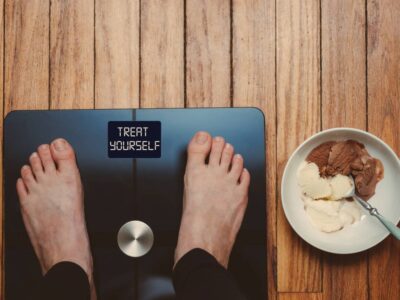In an ideal scenario, you’d be able to go to bed early and wake up refreshed for a productive day ahead. But sometimes, commitments like work or taking care of children can make it hard to stick to this “early to bed, early to rise” routine.
When it comes to sleep, two things are crucial: the amount of sleep you get and how consistent your sleep schedule is.
Going to bed when it’s dark can help ensure you get enough rest and make it easier to fall asleep. It’s also important to aim for the right amount of sleep regularly to avoid potential health problems.
If you’re seeking advice for your own sleep routine, here are some guidelines to consider for achieving ideal sleep.
Not getting enough sleep can have significant negative effects on both your physical and mental health. Here are some common side effects:
1. Impaired Cognitive Function:
- Difficulty concentrating
- Poor memory
- Reduced decision-making ability
- Slower reaction times
2. Mood Changes:
- Increased irritability
- Mood swings
- Greater susceptibility to stress and anxiety
- Increased risk of depression
3. Weakened Immune System:
- Greater susceptibility to infections and illnesses
- Slower recovery times when sick
4. Weight Gain and Metabolic Issues:
- Increased appetite and cravings, especially for high-calorie foods
- Imbalance in hunger hormones, leading to overeating
- Reduced insulin sensitivity, increasing the risk of diabetes
5. Cardiovascular Problems:
- Increased risk of high blood pressure
- Greater likelihood of heart disease and stroke
6. Hormonal Imbalance:
- Disruption of hormones regulating appetite, metabolism, and stress
- Decreased levels of growth hormone, affecting growth and repair processes
7. Decreased Physical Performance:
- Reduced endurance and strength
- Impaired coordination and balance
- Slower reaction times, increasing the risk of accidents
8. Increased Risk of Chronic Diseases:
- Greater susceptibility to conditions such as obesity, diabetes, and certain cancers
9. Mental Health Issues:
- Increased risk of depression and anxiety disorders
- Worsening symptoms of existing mental health conditions
10. Impaired Immune Function:
- Decreased production of immune cells
- Reduced ability to fight off infections and illnesses
11. Decreased Libido:
- Reduced sex drive and sexual function
12. Poor Skin Health:
- Dark circles under the eyes
- Increased wrinkles and fine lines
- Dull, dry, or irritated skin
13. Increased Risk of Accidents:
- Impaired judgment and slower reaction times, leading to a higher risk of accidents while driving, operating machinery, or performing other tasks
14. Decreased Quality of Life:
- Overall reduction in quality of life due to physical, mental, and emotional effects of sleep deprivation
What are the side effects of too much sleep?
While not as commonly discussed as the side effects of sleep deprivation, getting too much sleep can also have negative consequences on health. Here are some potential side effects of oversleeping:
1. Increased Risk of Obesity:
- Oversleeping has been linked to weight gain and obesity due to decreased physical activity and metabolic changes.
2. Impaired Cognitive Function:
- Excessive sleep can lead to brain fog, poor concentration, and memory problems similar to those experienced with sleep deprivation.
3. Higher Risk of Cardiovascular Issues:
- Long sleep durations have been associated with an increased risk of heart disease, stroke, and other cardiovascular problems.
4. Mental Health Issues:
- Oversleeping is linked to depression, mood disturbances, and increased feelings of lethargy and fatigue.
5. Increased Pain Sensitivity:
- Studies suggest that too much sleep can exacerbate pain sensitivity and discomfort, potentially worsening chronic pain conditions.
6. Higher Risk of Diabetes:
- Extended sleep duration has been associated with an increased risk of developing type 2 diabetes due to disruptions in insulin sensitivity and glucose metabolism.
7. Negative Impact on Immune Function:
- Oversleeping can weaken the immune system, making individuals more susceptible to infections and illnesses.
8. Headaches:
- Sleeping too much can trigger headaches or migraines in some individuals.
9. Increased Mortality Risk:
- Some research suggests that both short and long sleep durations are associated with a higher risk of mortality, although the reasons for this association are not entirely clear.
10. Social and Occupational Impairments:
- Oversleeping may lead to difficulties in maintaining social relationships, as well as problems at work or school due to excessive tiredness and absenteeism.
11. Disruption of Circadian Rhythm:
- Oversleeping can disrupt the body’s natural circadian rhythm, leading to difficulties falling asleep at night and perpetuating a cycle of irregular sleep patterns.
12. Lower Quality of Sleep:
- Sleeping too much can lead to fragmented and lower-quality sleep, resulting in feelings of grogginess and fatigue upon waking.
13. Decreased Physical Performance:
- Excessive sleep can lead to decreased physical stamina, coordination, and performance, similar to the effects of sleep deprivation.
Final thought
In general, it’s better to go to bed earlier at night and wake up early each day. However, this schedule might not suit everyone.
The most important thing is to ensure you get sufficient and high-quality sleep. You can achieve this by maintaining a consistent bedtime and wake-up time every day.
If you struggle to fall asleep at night or feel sleepy during the day despite sticking to a regular sleep schedule, consider consulting a doctor. This could be a sign of sleep quality issues that require further evaluation.












